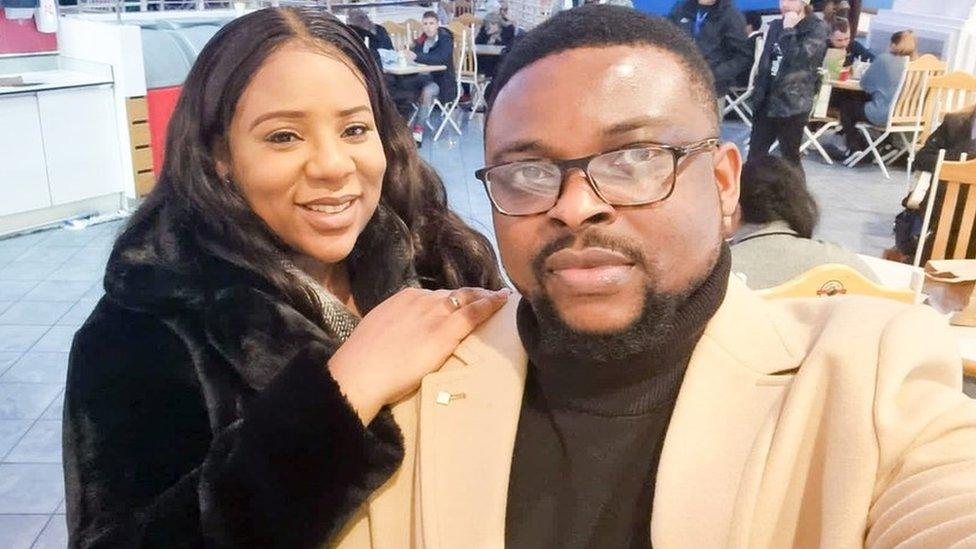Bereaved parents' call to address racial imbalance
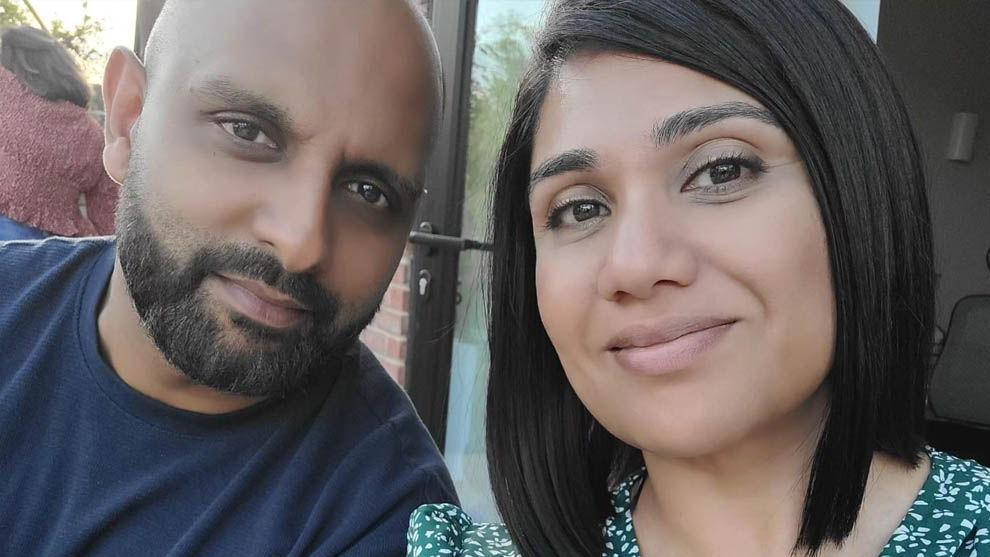
Vaishali and Rahul Bamania's daughter Jaya was born at 22 weeks in 2019
- Published
A mother is calling for more support to address a racial discrepancy in baby loss.
Vaishali Bamania, from Preston, learned she had womb cancer while trying for a baby and after successful treatment went through an 18-month IVF journey to conceive.
Daughter Jaya was born at 22 weeks in 2019 and lived for 14 minutes.
Mrs Bamania said the government "needs to put in some resources to reduce inequalities in the health care system".
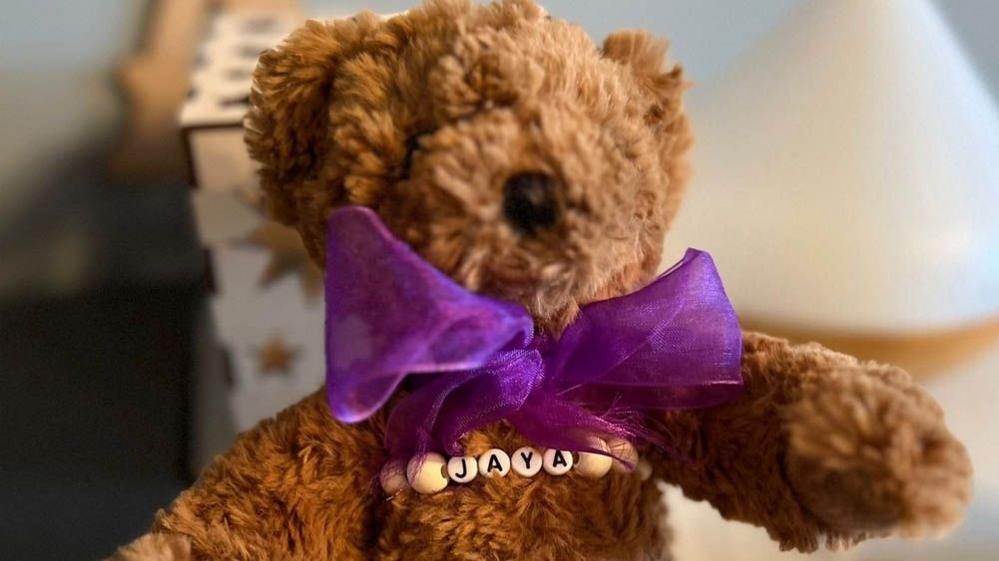
Mrs Bamania said she wanted her daughter's "short life to mean something"
"The care was fine during my pregnancy I thought," Mrs Bamania said. "I was told early on that I would be under a high-risk team because of conception with IVF."
She went for a routine 20 week scan with her husband Rahul and was expecting to also have blood and urine tests, before being told the tests were not necessary.
"I wonder now if they would have found the beginnings of an infection at that point because just before 22 weeks I started experiencing some leaking. I didn't know if it was normal or not so I called the hospital."
She was told to rest and see if it continued.
"Nothing more happened so I called back and said everything's normal and they said 'oh then you're fine, just carry on', so we flew to Italy the next day.
"But it turned out to be an infection.
"They admitted me overnight and I called the hospital in the UK who said 'there's nothing we can do for you'."
"I was confused, annoyed and a bit lost. We just didn't know what to do."
They ended up getting a flight back to the UK the following day and going straight to hospital.
Following a scan, she was told there was no amniotic fluid around the baby and she would have to give birth.
"I was just in shock," she said.
After her daughter was born, she held her until she died.
'Understand the warning signs'
Black women were nearly four times more likely than white women to die within six weeks of giving birth, with Asian women 1.8 times more likely, according to UK figures for 2018-20.
Data also showed Black and Asian babies were more likely to be stillborn or die, external in the neonatal period.
"I don't understand why, in 2024, the statistics are still that you are more likely to experience baby loss if you are South Asian or black," Mrs Bamania said.
"I know a lot of work's been done to reduce baby loss death rates across the board, but why's it still persisting more in the South Asian and black communities?
"Nobody should be at more risk of their baby dying just because of the colour of their skin."
"There's nothing to bring Jaya back, but if I can help somebody else to maybe understand the warning signs, or to know how to advocate for themselves or call on the government to do more, then why shouldn't I do that.
"I want her short life to mean something."
A Department of Health and Social Care spokesman said: "It is unacceptable that too many babies and their mothers are not receiving the care they deserve.
"We will take action to close the Black and Asian maternal mortality gap and tackle the unacceptable inequalities in care."
The spokesman added the government was "determined to ensure all women and their babies receive safe, personalised, and compassionate care from maternity and neonatal services".
If you've been affected by the issues raised in this article, help and support can be found via BBC Action Line
Listen to the best of BBC Radio Lancashire on Sounds and follow BBC Lancashire on Facebook, external, X, external and Instagram, external. You can also send story ideas to northwest.newsonline@bbc.co.uk, external
- Published17 December 2023
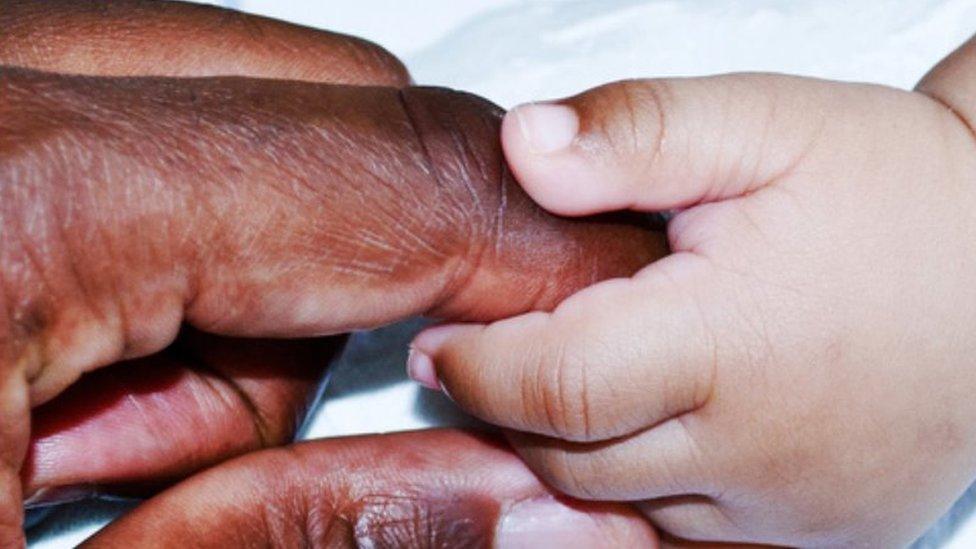
- Published18 April 2023
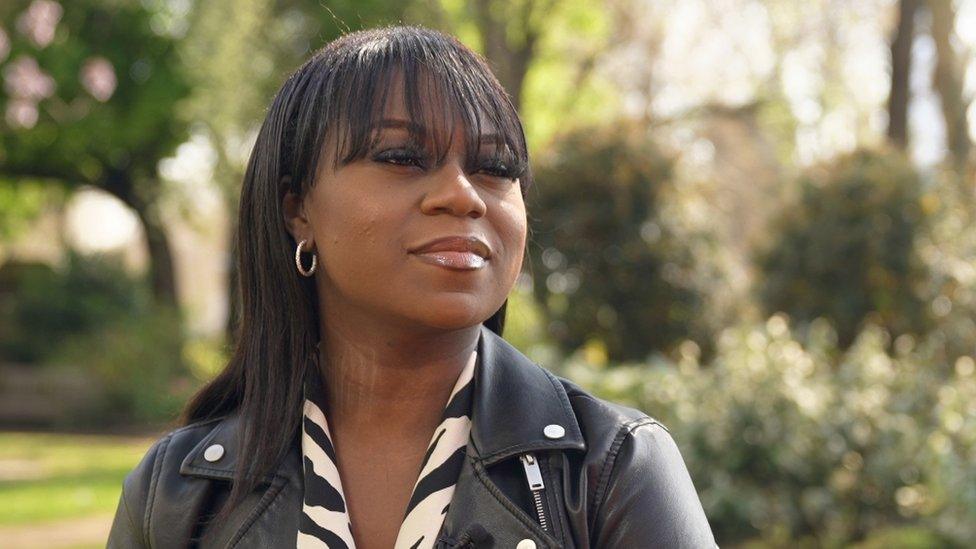
- Published8 February 2022
